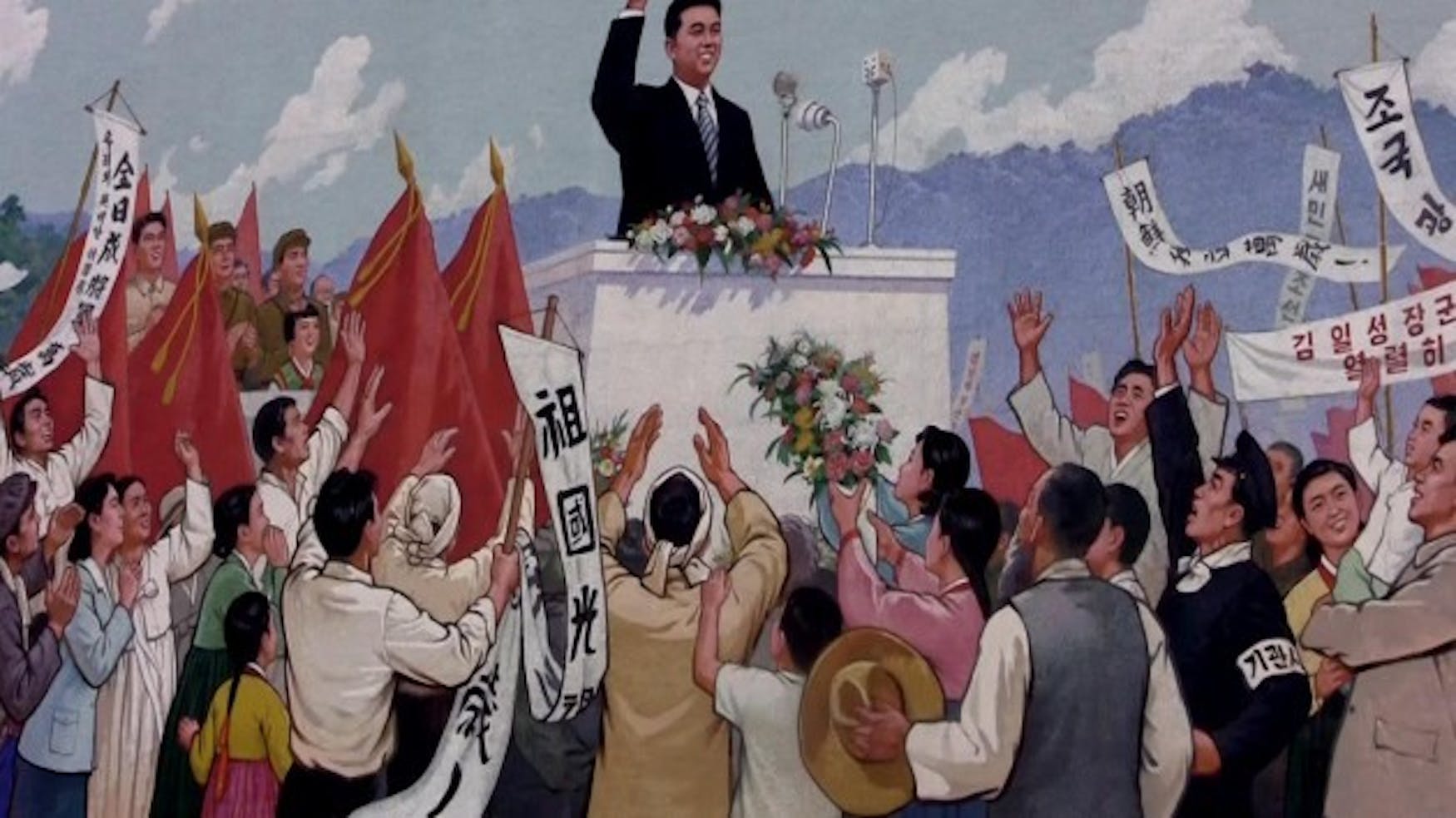Film examines North Korean "national myth"
This Thursday evening, a group of eager students poured into the Edie and Lew Wasserman Cinematheque for one of the latest screenings presented by the Wasserman Fund and the Film, Television and Interactive Media Program. Juche Strong is a 2013 documentary short that takes viewers inside North Korea. Filmmaker Rob Montz attended the screening and stayed afterward for a special talkback with Prof. Heyward Parker James (HIST), an expert on Asian history.
Though an equal mix of students and faculty generally attend the documentaries that are screened in Wasserman, the students really flocked to see Montz's film this time. While the theater was almost empty five minutes before the scheduled start time, when I looked around as the film begun, it had almost completely filled up.
Montz's film is anything but traditional-the work has a running time of just under 30 minutes, and opens with a jazzy title, displaying "Juche Strong" in giant red and yellow letters. But appropriately, Montz's directorial style is also quite untraditional; he sought to explore the Juche philosophy as the "national myth" of North Korea, and seemed not only opposed to, but also perturbed by, the nervous sensationalist hype created around the country today.
The Juche philosophy is a a system of thinking initiated by Kim Il-sung that maintains that it is the people of North Korea that control the country's development. To deconstruct the philosophy, Montz divided up his film into four chapters: "Resilience," "The Formula," "Effects" and "Normal." Essentially, he wanted to show Western viewers that one cannot impose his own point of view onto another who is different from him; the film argues that the people of North Korea take great pride in the Juche philosophy, and largely see their commitment to their country and leader as a catalyst of self-reliance.
The film opened with a statement of the Juche philosophy by Kim Jong-il and a mini-montage of clips of the cityscape and country surrounding Pyongyang, the capital of North Korea. Clips of youths dancing in lavish, technically perfect performances for the Great Leader, military men marching through wide city streets, impoverished workers making their way through fields of crops and a sampling of the iconoclasm of the Great Leader that decorates the city were pieced together in the introduction. Montz also included snippets of interviews with several college professors and Asian historians, and even with a woman who was a defector from North Korea, among these visions of the landscape of Pyongyang.
After the film finished, James opened up the talkback with Montz, saying, "I am so thankful to hear propaganda that is not ours." The audience laughed along, and Montz explained the depiction of performance and nationalism in the film:, "There's nothing there that doesn't resemble what we see here ... It's ultimately supposed to be de-exotifying [sic] and demystifying." Montz was careful to be very clear with the audience as to his intention in making the film. "This is not an apologist work. I'm trying to shine a light on what I think is an essential element of control," he said, explaining how he was fascinated with the collective mindset of the country and how Juche is perpetuated on both an individual and national level.
The audience had many questions about Montz' time in North Korea, where he spent 10 days collecting the footage for the film. He admitted that some of his subjects knew that they were being filmed, but many didn't. "It's shockingly easy to get in there," Montz said, "There are 30 or 40 places that are open to visit and they cap the amount of time you can be there at 10 days. The vast majority of people that I met there were very open and evinced no hate for me."
If demystifying was his mission, I believe Montz succeeded; though the film left many questions unanswered about the oppression that has come with submission to Juche, it did challenge a largely American audience to think differently about a region that our media has sensationalized for years.
*



Please note All comments are eligible for publication in The Justice.